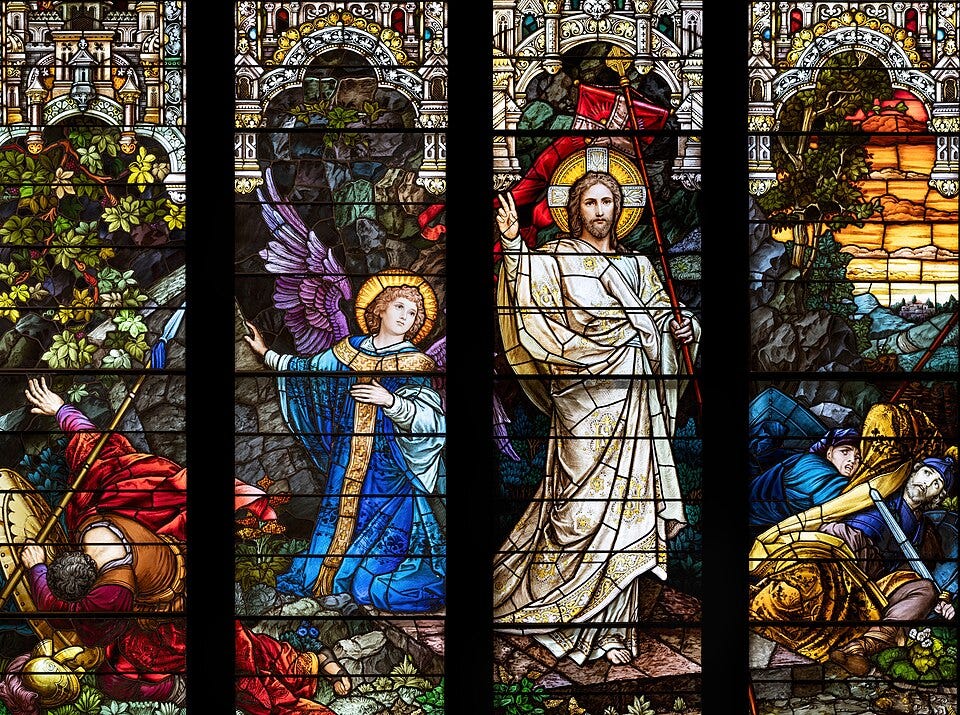
After forty days of Lent, including Holy Week, we come to the central event of the church calendar: the day that Jesus Christ rose from the dead, the central event in human history.
The annual celebration of Christ’s resurrection probably started from the very beginning: Jewish Christians would have continued celebrating Passover every year, but would have also commemorated the Messiah’s resurrection during that feast. This is reflected in the fact that the Greek and Latin name for Easter is Pascha, which ultimately comes from the Hebrew word for Passover: Pesach.
when do we celebrate easter?
For the earliest Christians living in Judea or in other Jewish communities, it was easy to decide when Easter would be: since Jesus died on the day that the Jews celebrated the Passover sacrifice, Jesus’ death and resurrection would always be remembered at that same time of year. In fact, even a few centuries later some Christian groups in Asia Minor remembered Jesus’ death on the day of the Passover sacrifice and his resurrection two days later, no matter what day of the week those fell on.1
In the West, it became customary to always remember the crucifixion on a Friday and the resurrection on a Sunday, especially since every Sunday was tied to the resurrection. (More on that in a bit.) Eventually, the Sunday option became more and more common.
But Christian communities quickly became disconnected from Jewish communities, and churches in different locations came to calculate the date for Easter differently. Many argued that the whole church, across the Roman Empire, should be unified in celebrating Easter on the same day. So in 325, the Council of Nicaea decided that Easter should always be observed on the first Sunday after the first full moon after March 21, the day of the spring equinox in the northern hemisphere.
You may have heard, though, that the Eastern and Western churches often celebrate Easter on different days. This is because while Western churches and nations adopted the Gregorian calendar starting in the 1580s, the Eastern churches stayed with the Julian calendar. Today, the two calendars are 13 days out of sync, which means the first full moon after March 21 isn’t always the same for both calendars.
isn’t the name ‘easter’ pagan?
While many European languages get their name for this holy day from the Greek and Latin Pascha — such as French (Pâques) and Spanish (Pascua) — German and English (a Germanic language), are different. In the eighth century, the Venerable Bede wrote that the name came from the pagan goddess Eostre. Many have assumed that the name comes from the church appropriating a pagan spring holiday and making it the celebration of Jesus’ resurrection instead.2 So, is Easter just a rebranded pagan holiday?
The problem is that Bede’s claim is the only record we have of that goddess. The name Easter seems to actually have come from the month that the holy day usually fell in: Eostermonath (literally Easter Month), and the holiday just took the name of the month, much like America’s Independence Day is commonly known as the Fourth of July. It is possible, even likely, that Eostermonath was named for a pagan god or goddess, but so are our modern months and our days of the week. So if that is a reason to reject the name Easter, we must also reject Maundy Thursday (lit. “Thor’s Day”), Good Friday (lit. “Frigg’s Day), and even “Resurrection Sunday” (named for the Sun, which was often worshiped as a god or associated with a particular god).
People have also claimed pagan roots for common Easter symbols, such as bunnies and eggs. Biblical scholar and historian Wes Huff has a great video debunking the pagan roots of Easter and it’s symbols:
Easter more than once a year?
As we said at the beginning, Easter is the central event of the Christian year. If Jesus had not risen from the dead, Christianity would not exist today. Certainly, if the Apostles didn’t believe they had seen the risen Jesus with their own eyes, they would not have died for that belief.
The resurrection of Jesus is important to us because it means that Jesus not only died for our sins, but he conquered death for us. True life comes through Christ alone. When Jesus raised Lazarus from the dead, he told Martha “I am the resurrection and the life.”3 And then he proved it. And when the religious leaders killed him, he proved it again.
If this event is so central to our faith, why do we only celebrate it once a year? The truth is, we don’t, or at least we’re not supposed to. The reason early Christians began meeting on Sundays is because Jesus rose on a Sunday. Every Sunday gathering is meant to be a celebration of the Resurrection. Every Sunday is a little bit of Easter!
So, as we observe Easter this year, let’s enjoy the celebration, enjoy the songs, and enjoy the feast. But when next Sunday rolls around, remember that it is yet another opportunity to celebrate that Christ is risen indeed!
“Easter”, Britannica.com, https://www.britannica.com/topic/Easter-holiday.
Britannica.com
John 11:25, ESV.





Great stuff. Love the Wes Huff video!